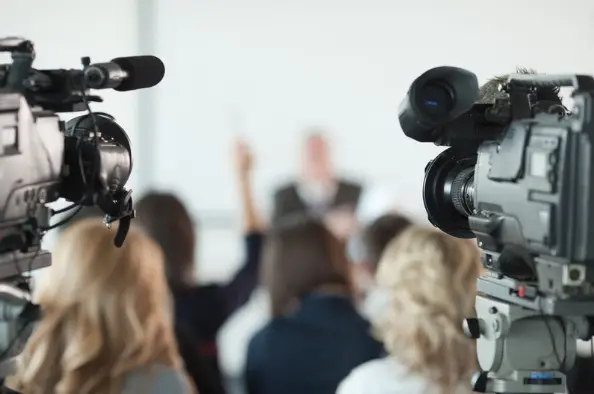Exploring Meet the Press s76e49: What Happened and Why It Matters

Meet the Press s76e49 is one of the longest-running TV shows in America. It has been a key place where important political conversations happen. Recently, the 49th episode of its 76th season aired, full of discussions about national and international issues. This article will take you through what happened in the episode, why it’s important, and how it might influence public opinion and the decisions made by leaders.
Key Highlights and Discussions in the Latest Episode
Diverse Guests and Important Topics
Meet the Press’s latest episode had many guests, each offering unique views. The show started with a special interview with a high-ranking government official. This official talked about the government’s position on several big issues people are worried about.
Foreign Policy
First, the discussion was about the situation in Eastern Europe. The government official shared thoughts on how the U.S. is trying to ease tensions and stabilize the region. They discussed the importance of strong relationships with NATO partners while conversing with Russia to avoid more problems.
Next, the talk moved to the Middle East, where recent events have made people worry about the region’s stability. The official explained the U.S.’s plan to support its allies while working towards peace. They also talked about the Iranian nuclear deal and how the U.S. is trying to stop nuclear weapons from spreading in the area.
Debating Domestic Policies
The State of the U.S. Economy
After discussing international issues, the episode focused on domestic matters, especially the American economy. Experts such as economists, business leaders, and labor representatives debated inflation, job growth, and the overall state of the financial markets.
Challenges for Working Families
Much of this conversation was about the problems working families face, such as rising living costs and stagnant wages. The panelists shared different ideas on solving these problems, ranging from government help to letting the market find solutions.
Recent Legislative Changes
The discussion also included recent laws passed, such as those related to infrastructure and clean energy. The panelists examined how these policies might create jobs, boost economic growth, and help the country achieve a more sustainable future.
Addressing Climate Change and Environmental Policies
Urgency of Climate Change
Given the growing importance of climate change, the episode spent a lot of time discussing environmental policies. A well-known climate scientist joined the discussion to discuss the latest research on global warming and what it might mean for the future.
Reducing Carbon Emissions
The panel explored different ways to reduce carbon emissions, such as carbon pricing, incentives for renewable energy, and regulations on polluting industries. They debated the pros and cons of various proposals, considering how they might impact the economy and how effective they would be in fighting climate change.
Healthcare Reform and Public Health Issues
Lessons from the Pandemic
The episode included a segment on public health, reflecting ongoing debates about healthcare reform and lessons learned from the COVID-19 pandemic. Medical experts, policy analysts, and healthcare industry representatives discussed the current state of the American healthcare system and how it might be improved.
Expanding Healthcare Access
Topics included ideas for making healthcare more affordable, addressing health disparities among different groups, and strengthening the country’s ability to handle future health crises. The discussion also touched on the growing role of telemedicine and new technologies in the future of healthcare.
Examining the Political Landscape and Electoral Reform
Analyzing the Current Political Climate
As usual, Meet the Press had a segment on the current political situation and upcoming elections. Political strategists from both major parties discussed recent polling data and possible strategies for the midterm elections.
Debating Electoral Reforms
The conversation also covered ongoing debates about electoral reform, including efforts to protect voting rights and ensure a fair election process. The panelists discussed the possible effects of new state voting laws and proposed federal legislation to standardize election procedures nationwide.
Media Landscape and the Battle Against Misinformation
The Role of Media in Shaping Public Opinion
Understanding the importance of media in shaping people’s opinions, the episode discussed how the media is changing and the challenges related to misinformation. Journalists, media scholars, and tech industry representatives discussed the responsibilities of news organizations, social media platforms, and individual viewers in making sure people are well-informed.
Fighting False Information
The discussion included strategies to fight the spread of false information online, the impact of how algorithms decide what people see, and the need for media literacy education. Panelists also discussed how news organizations’ business models are changing, what that means for journalistic integrity, and the variety of perspectives available to the public.
International Trade and the Global Economy
Understanding Global Trade
Recognizing how interconnected the global economy is, the episode talked about international trade and economic cooperation. Experts in international economics and trade policy looked at the current state of global trade, including ongoing negotiations, tariff disputes, and efforts to strengthen supply chains.
Emerging Economies and Technological Advancements
The conversation covered the challenges and opportunities presented by emerging economies, the impact of new technologies on global trade, and strategies for promoting fair and sustainable trade practices. Panelists also discussed the role of international institutions in fostering economic cooperation and addressing global economic challenges.
Education and Workforce Development
Importance of Education
Recognizing how crucial education is for the nation’s future, the episode featured a segment on education policy and workforce development. Education experts, business leaders, and policymakers discussed ways to improve educational outcomes, address disparities in access to quality education, and prepare students for future jobs.
Preparing for the Future
The discussion touched on early childhood education, STEM (Science, Technology, Engineering, and Math) programs, vocational training, and making higher education more accessible and affordable. Panelists also explored how the nature of work is changing in the digital age and the need for lifelong learning and skill development.
Social Justice and Civil Rights
Ongoing Efforts for Equality
The episode included a social justice and civil rights segment as part of its commitment to addressing social issues. Civil rights leaders, legal experts, and community organizers discussed recent developments in the fight against discrimination and systemic inequalities.
Criminal Justice Reform and Grassroots Movements
The conversation covered criminal justice reform, efforts to combat racial and gender discrimination, and strategies for promoting greater social and economic mobility. Panelists also discussed the role of grassroots movements and community-based organizations in driving social change.
Technological Advancements and Ethical Challenges
Rapid Technological Progress
Given the fast pace of technological innovation, the episode also discussed new technologies and their potential impact on society. Tech industry leaders, ethicists, and policy experts had a thought-provoking discussion about the promises and challenges of advancements in artificial intelligence, biotechnology, and other cutting-edge fields.
Balancing Benefits and Ethics
The conversation explored the potential benefits of these technologies in areas like healthcare, environmental protection, and economic productivity. At the same time, panelists wrestled with ethical challenges like privacy concerns, data security, and the possibility that technology could replace workers.
Conclusion About Meet the Press s76e49
The Show’s Enduring Importance
As this detailed overview of Meet the Press s76e49 shows, the program remains vital for deep discussions on the most important issues facing the nation and the world. By bringing together a wide range of voices, Meet the Press helps viewers understand complex topics and encourages critical thinking about the challenges and opportunities ahead.
Interconnected Issues and the Need for Holistic Solutions
The wide-ranging discussions in this episode highlight how many issues society faces today are connected. The conversations, from climate change and healthcare reform to technological innovation and social justice, underscore the need for holistic, multifaceted approaches to solving these problems.
The Role of Informed Public Discourse
Moreover, the episode reminds us of the importance of informed public discourse in a healthy democracy. By providing a platform for experts, policymakers, and thought leaders to engage in meaningful debates, Meet the Press plays a crucial role in educating and empowering citizens to participate actively in the democratic process.
Looking to the Future
As we move forward, it’s clear that programs like Meet the Press will continue to play an essential role in shaping public understanding of complex issues and fostering dialogue across political and ideological divides. By staying committed to rigorous journalism and thoughtful analysis, Meet the Press remains a valuable resource for anyone who wants to stay informed and engaged in the ever-changing landscape of national and global affairs. If you also want to read about Cavazaque then visit that post.
Frequently Asked Questions
How long has Meet the Press been on the air?
Meet the Press is America’s longest-running television program, having first aired in 1947. The show has been a staple of political discourse for over seven decades.
How often does Meet the Press air new episodes?
Meet the Press typically airs new episodes weekly on Sunday mornings.
Who hosts Meet the Press?
As of 2024, Chuck Todd, who has been moderating Meet the Press since 2014, hosts the program.
How does Meet the Press select its guests?
The show’s producers aim to feature diverse voices, including government officials, policy experts, journalists, and thought leaders. Guests are typically selected based on their expertise and relevance to current events.
Can viewers submit questions for the show?
While Meet the Press doesn’t typically take live questions from viewers during the broadcast, the show’s social media accounts often engage with audience comments and questions.
How can I watch Meet the Press if I miss the live broadcast?
Episodes of Meet the Press are usually available to stream on the NBC News website and various digital platforms shortly after they air.
Does Meet the Press cover international news?
While the show primarily focuses on U.S. politics and policy, it regularly features discussions on international affairs and global issues that impact American interests.
How does Meet the Press maintain journalistic integrity and balance?
The show strives to present diverse viewpoints and maintain objectivity by featuring guests from across the political spectrum and asking challenging questions of all participants.
Has Meet the Press won any awards?
Meet the Press has received numerous awards and accolades, including Emmy Awards and Edward R. Murrow Awards for its journalism.
How can I learn more about the topics discussed on Meet the Press?
The show’s website often provides additional resources and background information on the topics discussed in each episode, allowing viewers to explore issues of interest further.





